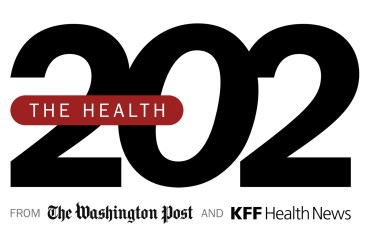Medicaid’s ‘Unwinding’ Can Be Especially Perilous for Disabled People
Earlier this year, Beverly Likens thought she’d done everything she needed to do to keep her Medicaid. Then came an unwelcome surprise: Ahead of surgery to treat chronic bleeding, the hospital said her insurance was inactive, jeopardizing her procedure.
Likens had just been diagnosed with severe anemia and given a blood transfusion at the emergency room. “I was just ready to fall to pieces,” she said. The Kentucky resident, 48 at the time, experienced a coverage gap that she and a lawyer who tried to help say never should have happened.

The Health 202 is a coproduction of The Washington Post and KFF Health News.
Subscribe NowThe situation highlights a complication with what’s known as the Medicaid “unwinding.” States are reviewing the eligibility of millions of Americans who remained enrolled in the safety-net health program through the pandemic — but the process has been messy and caused chaos all over the country, as KFF Health News has reported.
In part, that’s because people are being asked to reapply when they shouldn’t need to, or outright dropped when they still qualify. According to consumer advocates and legal aid attorneys, some states aren’t following federal rules that require them to consider all the ways people might qualify for Medicaid before concluding that they’re ineligible and terminating their coverage. That’s what happened to Likens.
Before she lost her coverage, Likens qualified for Medicaid because she had Supplemental Security Income, a program for people with little to no income or assets who are blind, disabled or at least 65 years old. After she lost her SSI benefits in the spring because she had assets whose cash value exceeded federal limits, Kentucky’s Medicaid agency sent a notice in April that she’d automatically lose her health coverage but could reapply.
The state didn’t assess whether Likens qualified another way. She did: Even without SSI, her income was low enough. And when she tried to reapply herself, she experienced technical issues with Kentucky’s enrollment system — another common problem around the country.
“There undoubtedly are people who are eligible in another category, but they’re falling through the cracks,” said Joan Alker, executive director of the Georgetown University Center for Children and Families.
Medicaid eligibility is complicated. Often, someone who qualifies initially for one reason can remain eligible even when their life circumstances change, as long as their income remains below certain thresholds. But those income thresholds can vary — both state by state and even within a single state.
At least 11.1 million people have been disenrolled from Medicaid this year, as of Monday, according to KFF’s unwinding tracker, while 20.7 million had their coverage renewed. During the pandemic, when states were banned from disenrolling people, Medicaid enrollment grew by 22.6 million, data from the Centers for Medicare and Medicaid Services shows.
Certain Medicaid beneficiaries are more likely to run into problems maintaining enrollment, said Jennifer Tolbert, associate director of KFF’s program on Medicaid and the uninsured. They include pregnant women whose eligibility for the program would change after delivery, kids who age out of eligibility or someone who had been receiving disability benefits but isn’t anymore — like Likens. There were 7.7 million SSI recipients as of 2021, according to the Social Security Administration.
But if a state’s Medicaid eligibility system works correctly, it “should automatically” assess all the ways an applicant may qualify, Tolbert said. “It should be built into the system.”
Likens, who doesn’t have children and isn’t working, was eventually reinstated and had her surgery. But she knows that other people aren’t as fortunate. “We are entitled to health care,” she said.
This article is not available for syndication due to republishing restrictions. If you have questions about the availability of this or other content for republication, please contact NewsWeb@kff.org.
KFF Health News is a national newsroom that produces in-depth journalism about health issues and is one of the core operating programs at KFF—an independent source of health policy research, polling, and journalism. Learn more about KFF.
USE OUR CONTENT
This story can be republished for free (details).
from Insurance Archives - KFF Health News https://ift.tt/85VXSK9
No comments